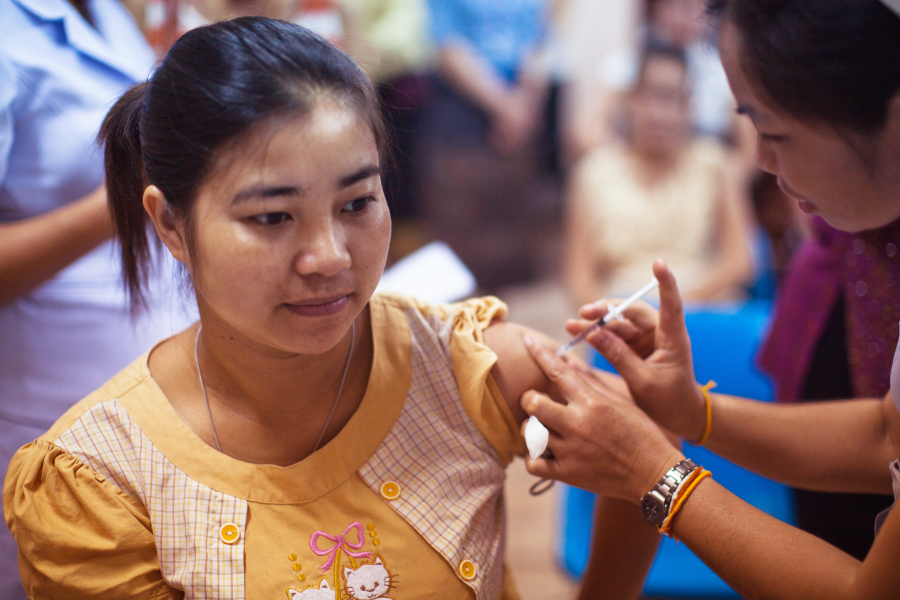
BEYOND THE BEDSIDE
Promoting Health and Wellness: How Community Health Nurses Make a Difference
-
 EveryNurse Staff
EveryNurse Staff
- Last Updated: 07/04/2023

In today’s dynamic healthcare landscape, the role of community health nurses has become increasingly vital in promoting health and wellness within communities. These dedicated professionals work tirelessly to bridge the gap between healthcare providers and the communities they serve. By focusing on prevention, education, and advocacy, community health nurses play a crucial role in improving health outcomes and addressing the unique needs of diverse populations.
In this article, we will explore the significant impact of community health nurses in public health, their key responsibilities, the influence they have on health outcomes, the challenges they face, and the lasting difference they make in the lives of individuals and families. Join us as we delve into the world of community health nursing and discover how these remarkable healthcare professionals are shaping the future of healthcare delivery.
The Role of Community Health Nurses in Public Health
Community health nurses play a vital role in public health by actively engaging with communities to promote and improve health and wellness. They serve as advocates, educators, and coordinators, working collaboratively with individuals, families, and local organizations. Their multifaceted role involves assessing community health needs, developing health promotion programs, and fostering partnerships to address public health challenges effectively.
Assessing Community Health Needs
One of the primary responsibilities of community health nurses is to assess the health needs of the communities they serve. Through surveys, interviews, and data analysis, they gather valuable information about the community’s demographics, prevalent health issues, and existing resources. This assessment helps identify priority areas for intervention and guides the development of targeted health initiatives.
Developing Health Promotion Programs
Based on the identified needs, community health nurses design and implement health promotion programs tailored to the specific requirements of the community. These programs may focus on various aspects of health, such as nutrition, physical activity, chronic disease management, and mental well-being. By providing education, resources, and support, community health nurses empower individuals and communities to make informed decisions and adopt healthier lifestyles.
Collaborating with Local Organizations
Community health nurses understand the importance of collaboration and actively engage with local organizations, such as community centers, schools, and healthcare facilities. By forging partnerships, they leverage resources and expertise to maximize the impact of health promotion efforts. These collaborations facilitate the implementation of comprehensive initiatives that address not only physical health but also social determinants and community-specific challenges.
Key Responsibilities of Community Health Nurses
Community health nurses undertake a range of responsibilities to promote and protect the health of individuals and communities. Their multifaceted role encompasses health education and promotion, disease prevention and management, advocacy for vulnerable populations, and emergency preparedness and response.
Health Education and Promotion
Community health nurses are educators at heart. They provide individuals and communities with essential health information, equipping them with the knowledge and skills needed to make healthy choices. Through workshops, seminars, and one-on-one interactions, they raise awareness about preventive measures, healthy behaviors, and the importance of regular health screenings. By empowering individuals with knowledge, community health nurses empower them to take control of their health.
Disease Prevention and Management
Preventing and managing diseases is a critical aspect of community health nursing. Nurses collaborate with healthcare providers and community organizations to implement vaccination campaigns, screenings, and early detection programs. They also work closely with individuals who have chronic conditions, providing education, support, and resources to manage their health effectively. By focusing on prevention and early intervention, community health nurses play a crucial role in reducing the burden of disease within communities.
Advocacy for Vulnerable Populations
Community health nurses advocate for the health needs of vulnerable populations, including low-income individuals, ethnic minorities, and the homeless. They strive to address health disparities by promoting equitable access to healthcare services and resources. Community health nurses work tirelessly to ensure that marginalized populations receive the support they need to achieve optimal health outcomes.
Emergency Preparedness and Response
In times of crises, such as natural disasters or disease outbreaks, community health nurses are at the forefront of emergency preparedness and response efforts. They develop emergency plans, coordinate resources, and provide immediate healthcare services to affected individuals. Their expertise in disaster management and healthcare delivery ensures that communities receive timely and effective support during challenging times.
The Influence of Community Health Nursing on Health Outcomes
Community health nursing has a significant impact on health outcomes at both individual and community levels. By addressing health disparities, improving access to healthcare services, and enhancing quality of life, community health nurses contribute to healthier communities.
Reducing Health Disparities
Community health nurses actively work towards reducing health disparities by advocating for social justice and equitable healthcare. They identify the unique needs of marginalized populations and develop targeted interventions to bridge the gaps in healthcare access and outcomes. Through their efforts, community health nurses strive to create a more inclusive and equitable healthcare system.
Improving Access to Healthcare Services
One of the key contributions of community health nurses is improving access to healthcare services, especially for underserved communities. They work closely with local organizations, healthcare providers, and policymakers to develop strategies that increase access to primary care, preventive services, and specialized treatments. By bringing healthcare closer to communities, community health nurses ensure that individuals can receive the care they need, leading to improved health outcomes.
Enhancing Quality of Life for Individuals and Families
Community health nurses play a pivotal role in enhancing the quality of life for individuals and families. By providing education, support, and resources, they empower individuals to make positive lifestyle choices and manage their health effectively. Through their holistic approach, community health nurses address not only physical health but also social, emotional, and environmental factors that influence well-being.
Challenges Faced by Community Health Nurses
While community health nursing is a rewarding profession, it also comes with its fair share of challenges. Community health nurses navigate various obstacles in their pursuit of promoting health and wellness within communities.
Limited Resources and Funding
Community health nurses often work in resource-constrained settings where adequate funding and resources are limited. This can impact their ability to implement comprehensive health promotion programs and address the diverse needs of the community. Despite these challenges, community health nurses find innovative ways to maximize available resources and leverage partnerships to deliver impactful interventions.
Addressing Social Determinants of Health
Social determinants of health, such as poverty, education, and access to safe housing, significantly influence health outcomes. Community health nurses face the challenge of addressing these underlying social factors that contribute to health disparities. They work collaboratively with community stakeholders and policymakers to advocate for policies and initiatives that address social determinants and create healthier environments for all.
Navigating Cultural and Language Barriers
In diverse communities, community health nurses encounter cultural and language barriers that can impact effective communication and health promotion. They strive to overcome these barriers by developing cultural competence, employing interpreters when necessary, and engaging community leaders as allies. By embracing cultural diversity and respecting individual beliefs, community health nurses ensure that their health promotion efforts are inclusive and tailored to the unique needs of the community.
Final Thoughts
Community health nurses play a pivotal role in promoting health and wellness within communities. Through their dedication, expertise, and collaborative approach, they make a significant difference in addressing health disparities, improving access to healthcare services, and enhancing the overall well-being of individuals and families. As we continue to recognize the value of community health nursing, it is crucial to support and invest in this profession to ensure the health and vitality of our communities.
Read More















